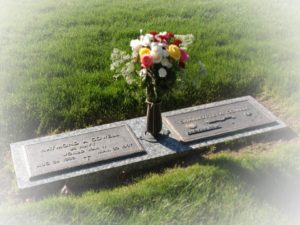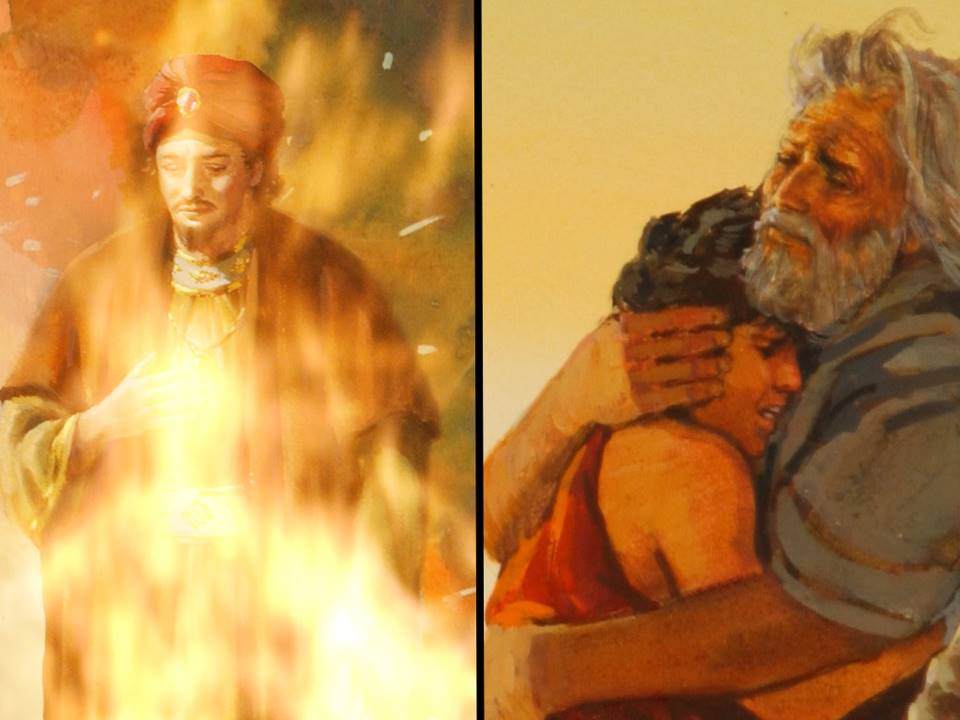
What happens to man after death?

Samuel Smith
23 Jan'19
5
LESSON 3
WHAT HAPPENS TO MAN AFTER DEATH?
You are welcome to another edition of Insights from God's Word, a Bible Study Programme that is committed to sharing God's Word by allowing the Bible to speak for itself.In this edition, we continue with our series on The Truth About Death. In this study, I want us to consider the question: What happens to man after death? We will actually be considering in detail the biblical doctrine of the state of the dead.
There are several belief systems about what happens to man after death. Many religions and cultures believe in the doctrine of the immortality of the soul. That is, the belief that people are conscious in death because their souls actually live on after death. In this study, I want us to consider what the Bible has to say on what happens when someone dies.
In the book of Genesis, God clearly instructed Adam and Eve: "16 ... of every tree of the garden thou mayest freely eat. 17 But of the tree of the knowledge of good and evil, thou shalt not eat of it: for in the day that thou eatest thereof thou shalt surely die" (
Friends, this passage in
Well friends, none of us alive have experienced death and so we cannot give any authoritative answer to the questions above. But the good news is that, despite the several opposing theories that are making rounds in regard to the subject of death, God’s Holy Word, the Bible, gives us clear insights on this crucial subject. The Bible does not leave us in doubt or confusion concerning the condition or state of the dead. At this point, I will want us to consider some texts of Scripture that will lead us to have a clearer understanding of the state of the dead. The scriptural texts have been grouped under various segments as follows:
1. THE COMPOSITION OF MAN
Before we can understand what happens to man at death, we need to first understand the composition or make up of man. FromFrom the text above, it is clear that God used two elements to bring mankind into being. These elements are the dust of the ground and the breath of life. Thus from
2. EXPLANATION OF THE KEY TERMS IN THE COMPOSITION OF MAN
a) Dust of the ground: This is basically the elements of the earth that God used to form the human body (b) The breath of life: This is the vital life force that emanates from God. This life force is what combines with the body to keep man alive (
In some portions of Scripture, the word ‘spirit’ is also used to refer to the breath of life. From
c) The Soul: This is the living person or living creature, the final product of dust of the ground and breath of life (
i) "Then they that gladly received his word were baptized: and the same day there were added unto them about three thousand souls" (
ii) "who formerly were disobedient, when once the Divine longsuffering waited in the days of Noah, while the ark was being prepared, in which a few, that is, eight souls, were saved through water" (
iii) "And we were in all in the ship two hundred threescore and sixteen souls (
Friends, these texts of Scripture make it clear that the soul is the living person; the product of the dust of the ground (body) and breath of life (spirit) as
3) WHAT HAPPENS TO MAN AFTER DEATH?
When death occurs, the reverse of the composition of man takes place. Froma) "Then shall the DUST return to the earth as it was: and the SPIRIT shall return unto God who gave it" (
b) "Thou hidest thy face, they are troubled: thou takest away their BREATH, they die, and return to their DUST" (
Friends, these texts make it clear that when a person dies, the body returns to the earth while the spirit or breath returns to God, the Author of life. I realize that many people struggle with this biblical statement, and so I want to take a moment to explain. When a person dies, the body which is made up of the dust of the ground quickly decomposes and becomes dust as it was (
Beloved, I hope you can notice from the passage above how the words BREATH and SPIRIT are used interchangeably. In other words, the Bible utilizes these two words in the same way. We also learn from this passage in Ecclesiastes, a key comparison that King Solomon makes in relation to the breath of man and that of animals. He states categorically that both man and beast have got one breath or spirit. He then concludes through a rhetorical question at the end of the passage that the breath or spirit of these two beings (that is, man and animals) go to the same place after death. In other words, the spirit or breath of one does not go up while the other goes down after death. I’m convinced that even people who promote the idea that man has an eternal spirit that survives mortal death do not think of the spirit of animals in the same way. But the biblical teaching is that the breath or spirit of the two beings (that is, man and animals) goes to the same place after death. Thus friends, it is clear from the biblical passages we have reviewed so far that the breath or spirit of man, just like that of the beast does not live on after death but rather adds up to the fountain of God’s air.
As I bring this segment to a close, I want to reiterate the biblical fact that death occurs when the breath or spirit separates from the body (
Friends, from the scriptural passages we have considered earlier in this study, it is clear that a human being (soul) is an indivisible unit of body and spirit (breath). We noted that without any of these two elements, a person would cease to exist. Now, for us to obtain a clear understanding of
4) IS A PERSON CONSCIOUS IN DEATH?
Contrary to the popular teaching of spiritism, the Bible clearly teaches that a dead person is not conscious of anything. Let us consider some few texts of Scripture in relation to the condition or state of the dead:a) "For the living know that they shall die: but the dead know not any thing, neither have they any more a reward; for the memory of them is forgotten. Also their love, and their hatred, and their envy, is now perished; neither have they any more a portion for ever in anything that is done under the sun" (
b) "Put not your trust in princes, nor in the son of man, in whom there is no help. His breath goeth forth, he returneth to his earth; in that very day his thoughts perish" (
c) "His sons come to honour, and he knoweth it not; and they are brought low, but he perceiveth it not of them" (
Clear facts from the biblical texts above:
i) The dead knows nothing. The dead do not know what happens to people on earth. Thus, they cannot be grieved or ecstatic about incidents or circumstances on earth.
ii) The dead cannot express any feeling or affection. For instance, they cannot love, hate, envy or empathize with the living.
iii) The thoughts of the dead person perish. He cannot remember anything from the past. He cannot think or plan anything for the future. He is not even aware of the passing of time.
5. DEATH IS LIKENED TO A DEEP SLEEP
Beloved, death is basically the cessation of life. From the scriptural texts we have gone through so far, it is clear that once a person dies, he has no consciousness. He cannot express any affection or feeling; neither can he make use of his mind. In fact, the Bible teaches that death is like a dreamless sleep. The Bible actually compares death to sleep more than 50 times. Let us consider a few of these clear texts of Scripture:a) "13 But I would not have you to be ignorant, brethren, concerning them which are ASLEEP, that ye sorrow not, even as others which have no hope. 14 For if we believe that Jesus died and rose again, even so them also which SLEEP in Jesus will God bring with him" (
b) "51 Behold, I shew you a mystery; We shall not all SLEEP, but we shall all be changed, 52 In a moment, in the twinkling of an eye, at the last trump: for the trumpet shall sound, and the dead shall be raised incorruptible, and we shall be changed" (
c) "So man lieth down, and riseth not: till the heavens be no more, they shall not awake, nor be raised out of their SLEEP" (
d) "And many of them that SLEEP in the dust of the earth shall awake, some to everlasting life, and some to shame and everlasting contempt" (
e) "Consider and hear me, O LORD my God: lighten mine eyes, LEST I SLEEP THE SLEEP OF DEATH" (
11:2 (It was that Mary which anointed the Lord with ointment, and wiped his feet with her hair, whose brother Lazarus was sick.)
11:3 Therefore his sisters sent unto him, saying, Lord, behold, he whom thou lovest is sick.
11:4 When Jesus heard that, he said, This sickness is not unto death, but for the glory of God, that the Son of God might be glorified thereby.
11:5 Now Jesus loved Martha, and her sister, and Lazarus.
11:6 When he had heard therefore that he was sick, he abode two days still in the same place where he was.
11:7 Then after that saith he to his disciples, Let us go into Judaea again.
11:8 His disciples say unto him, Master, the Jews of late sought to stone thee; and goest thou thither again?
11:9 Jesus answered, Are there not twelve hours in the day? If any man walk in the day, he stumbleth not, because he seeth the light of this world.
11:10 But if a man walk in the night, he stumbleth, because there is no light in him.
11:11 These things said he: and after that he saith unto them, Our friend Lazarus SLEEPETH; but I go, that I may awake him out of SLEEP.
11:12 Then said his disciples, Lord, if he SLEEP, he shall do well.
11:13 Howbeit Jesus spake of his DEATH: but they thought that he had spoken of taking of rest in SLEEP.
11:14 Then said Jesus unto them plainly, Lazarus is DEAD."
(
Exhortation: Beloved, even though death is with us because of sin, the comforting assurance we obtain from Scripture is that we do not have to fear death and the judgement that follows if we open the door of our hearts to Jesus Christ. For the Son of God encourages us with the following bold claims concerning Himself:
a) "I am he that liveth, and was dead; and, behold, I am alive for evermore, Amen; and have the keys of hell and of death" (
b) "I am the resurrection, and the life: he that believeth in me, though he were dead, yet shall he live" (
* Reference: Emphasizing the Wholeness of Man by Jonathan Oey Kuntaraf & Kathleen Liwidjaja-Kuntaraf (General Conference of Seventh-day Adventists).
In our next study, we will consider the questions: When a person dies where does he go? Where are our dead friends and relatives? Are they in Paradise? Hell? Purgatory? Some spirit world? Reincarnated? Or asleep in their graves? The Bible Study references for this study are
[Unless otherwise noted, all Scripture passages are from the King James Version.]
Stay blessed and keep shining for King Jesus.
Maranatha!
Powered by White Throne Ministries












